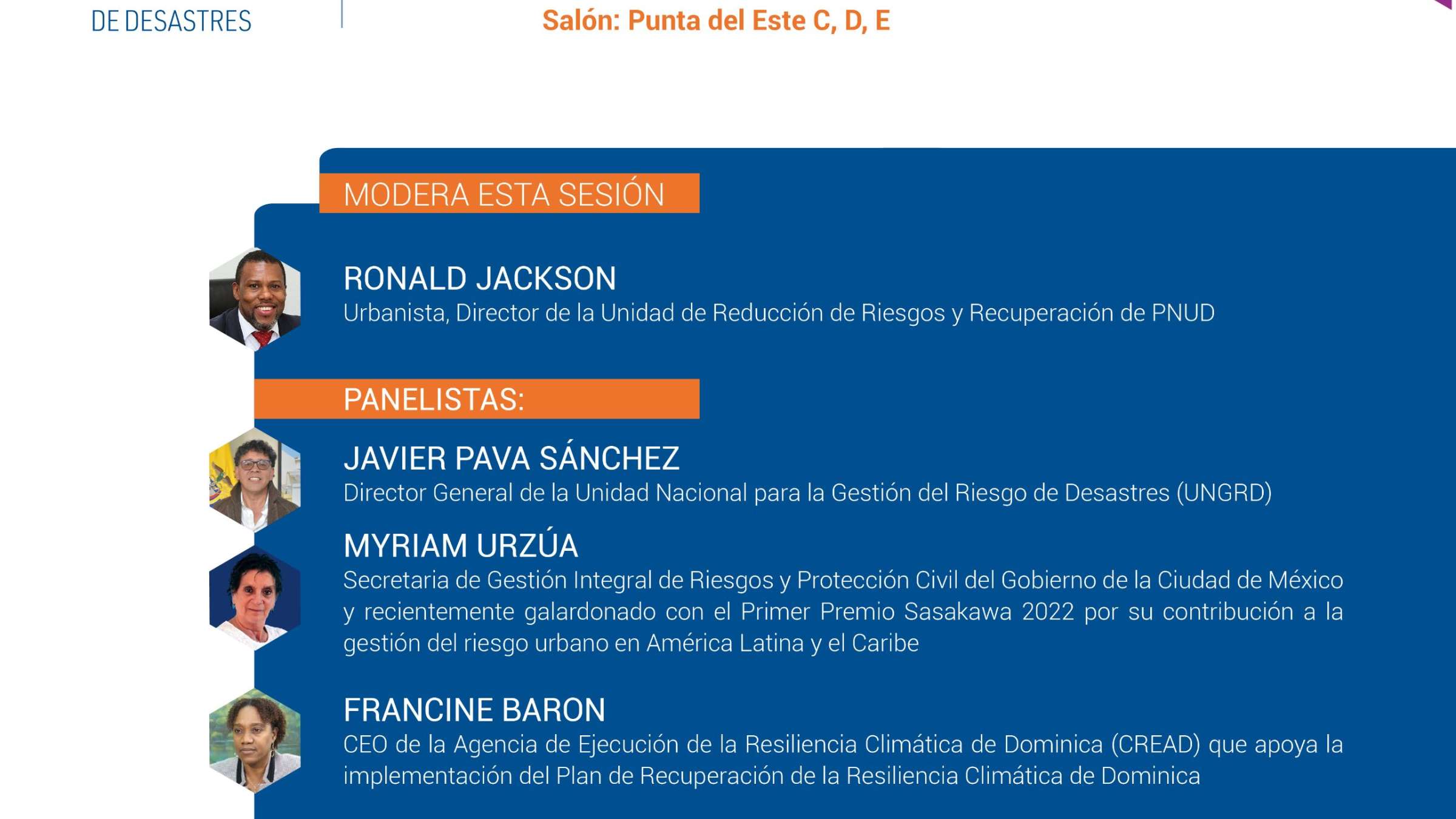PARALLEL SESSION: Urban risk reduction: Local leadership towards inclusive, cross-cutting, multilevel governance
In the Americas and the Caribbean, disasters increasingly affect urban areas, predominantly small and medium-sized cities, which were affected by 80% of urban events between 1995 and 2015.
Unplanned urbanization processes in the region have led to the concentration of risks and vulnerabilities in households, livelihoods, infrastructure, and socioeconomic assets. In informal settlements, disaster risks are linked to various other challenges, for example, unequal conditions, social cohesion, population displacement, and citizen security. For this reason, comprehensive joint efforts are required to influence the socio-economic and institutional causes that generate risk.
In this way, the session is related to SDG 11 – Sustainable cities and communities – specifically focused on making cities inclusive, safe, resilient and sustainable. More specifically, it contributes to the achievement of Target 11.5, which focuses on the need to reduce the human and economic cost of disasters in cities.
In addition, the session is linked to the UN New Urban Agenda, in particular to articles 77-78 that promote resilience building through spatial planning, inclusive planning to reduce vulnerabilities (in formal and informal settlements) and strengthening the capacities of households, communities, institutions and services to respond to and recover from disasters in a transformative way.
The session is also linked to the Sendai Framework for Disaster Risk Reduction 2015-2030, which emphasizes the critical role of local governments in reducing disaster risk. Risk management in urban areas cuts across the four priorities of the Sendai Framework, since it requires "localizing" the processes of understanding risk, integrating it into urban governance, investing in resilience and risk reduction, and strengthening the response and recovery capabilities.
Session objectives
- Recognizing the complexity of the urban problem and the determining factors that are exacerbating the generation of risk conditions, motivate the reflection of government actors, the private sector, civil society and international organizations on the importance of a specific intervention in urban areas.
- Identify key elements to take into account for risk management in urban areas, based on the experiences of actors from different territorial levels (e.g. urban governance, community participation, involvement of the private sector, science and technology).
- Explore entry points for a comprehensive and inclusive intervention towards urban risk management, linked to development processes, based on existing capacities and opportunities.

